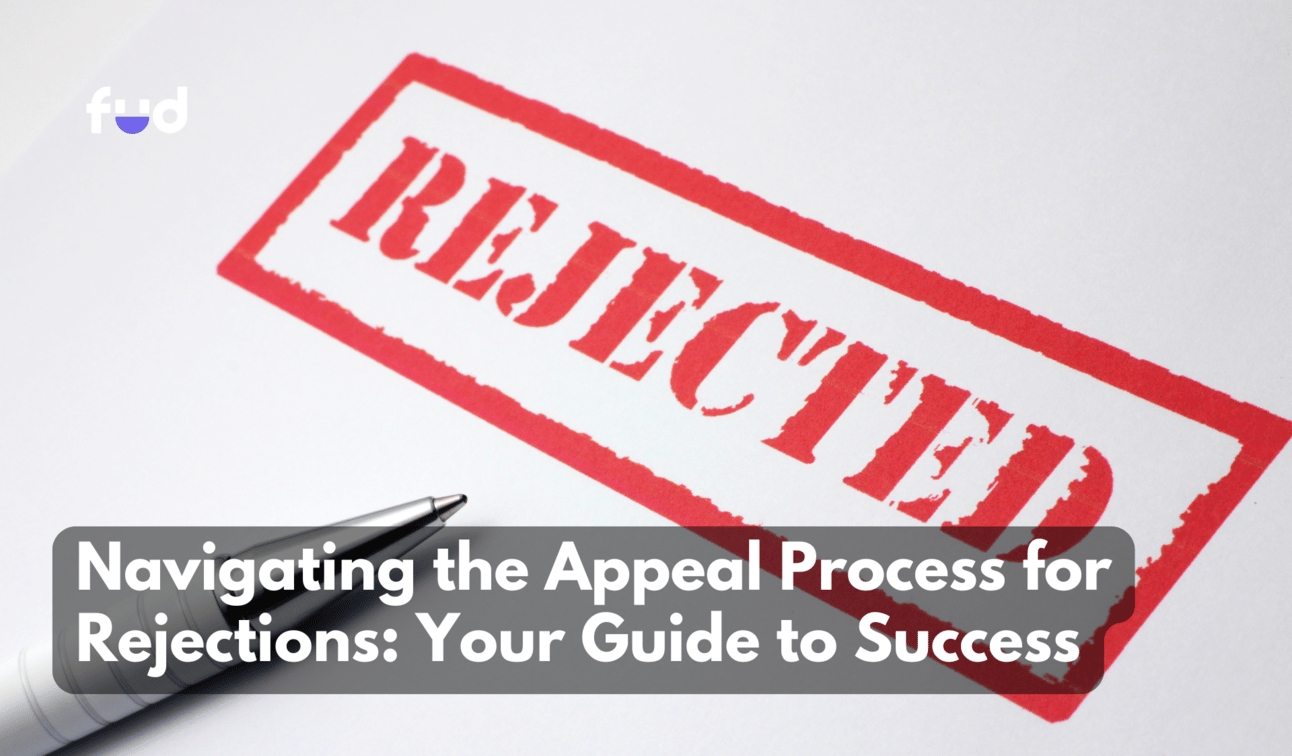Pioneering medicine starts with investors like you.
Cizzle Biotech is transforming lung cancer detection with a patented, 95% accurate blood test. By joining our raise, you’ll gain ownership in a company backed by partnerships with Bio-Techne and Moffitt Cancer Center. You can build your portfolio with a stake in a medical breakthrough.
Read the Offering information carefully before investing. It contains details of the issuer’s business, risks, charges, expenses, and other information, which should be considered before investing. Obtain a Form C and Offering Memorandum at invest.cizzlebio.com

Summary -
Rejection stings, but it's not the end. The appeal process lets you challenge decisions, like a denied microloan or grant. Start by checking if you can appeal, then file a notice of appeal. Build your case with existing evidence and a clear brief. Oral arguments may help too. After filing, await the appeal court decision. Win or lose, options remain. Stay organized, clear, and seek guidance. This guide empowers side hustlers and freelancers to transform setbacks into opportunities.
Rejection. We've all been there. Whether it's a microloan, grant, or another big opportunity, a rejection can feel like a punch in the gut. But don’t let a 'no' stop you. Think of it as a detour, not a dead end. Let's dive into the appeal process together, step by step, and explore how you can transform a rejection into a new opportunity.
Understanding the Appeal Process
Appealing a decision means asking a higher authority to review and change the outcome. It's not just for courtroom dramas. Whether it's a denial for a microloan or a grant, the appeal process is your chance to challenge the decision and potentially change it.
Can You Appeal?
Before you start drafting your appeal letter, it's crucial to determine if you can appeal. Not every decision is appealable. Generally, you can appeal if there is a belief that the decision was incorrect due to a legal error or lack of substantial evidence. Check the specific guidelines related to your case to ensure you meet all criteria and deadlines.
Filing the Notice of Appeal
Once you’ve confirmed that you can appeal, the next step is to file a notice of appeal. This document informs the relevant parties that you intend to challenge the decision. It’s essential to do this within the specified timeframe, or you might lose your right to appeal.
Building Your Case
The success of your appeal largely depends on how well you build your case. Here’s how to get started:
Gather Your Evidence
Compile all the relevant documents and evidence that support your case. This might include emails, contracts, application forms, or any communication that can back up your claims. Remember, new evidence is typically not allowed during an appeal, so focus on what was originally submitted.
Prepare Your Brief
Your brief is a written argument that outlines why the decision should be reversed. It’s your opportunity to point out errors and provide reasons for a different outcome. Keep it clear, concise, and focused on the facts.
Oral Arguments
Depending on the case, you might have the chance to present oral arguments. This is where you can further clarify your points and answer any questions the appellate body might have. It’s a bit like a mini-courtroom drama, but without the gavel-banging.
After the Appeal
So, what happens after you’ve filed your appeal and presented your arguments?
Awaiting the Decision
Once the appeal is submitted, the waiting game begins. The appellate court will review the case and make a decision. This can take some time, so patience is key.
If You Win
Congratulations! If the appellate body sides with you, the original decision is overturned. This could mean getting that microloan, grant, or opportunity you initially sought. It’s a huge win, so celebrate it!
If You Lose
If the appeal doesn’t go your way, it’s not the end of the road. You might have options to escalate the appeal to a higher court or seek a rehearing. Evaluate these options carefully, as they can be more complex and time-consuming.
Tips for a Successful Appeal
Stay Organized: Keep all documents and evidence in order. A well-organized appeal can make a significant difference.
Be Clear and Concise: Whether in writing or verbally, clarity is crucial. Avoid jargon and stick to the facts.
Seek Guidance: If possible, consult with a legal expert or someone familiar with the appeals process. They can offer valuable insights and advice.
Final Thoughts
Rejection doesn’t have to be the end of your journey. By understanding and navigating the appeal process, you can turn a 'no' into a potential 'yes.' Remember, persistence is key. Whether you're a side hustler or a freelancer, this guide is your ticket to tackling the challenge of an appeal. So, roll up your sleeves, get organized, and give it your best shot. Who knows? The outcome might just surprise you.
Feel free to share your thoughts or questions about the appeal process in the comments below. Let's support each other in turning setbacks into comebacks!
Recommended Experts and Mentors
Follow and subscribe to become a member to get the content, community, and mentorship you need:
Step-by-Step Guides
Enroll in these guides to build and master your side hustle. All our guides are created by vetted and proven experts:
Get Started with Graphic Design by LaDale L Whaley
Find the Best Online Business to Start by The eCommerce Mom
29 Side Hustles You Can Start With Less Than $10,000 by Arthur Wang
Recommended Tools
Check out these cool tools that will help you get going today:
FREE Side Hustle E-Book!
Start Your Side Hustle Success Story — Get your FREE E-Book guide now!



